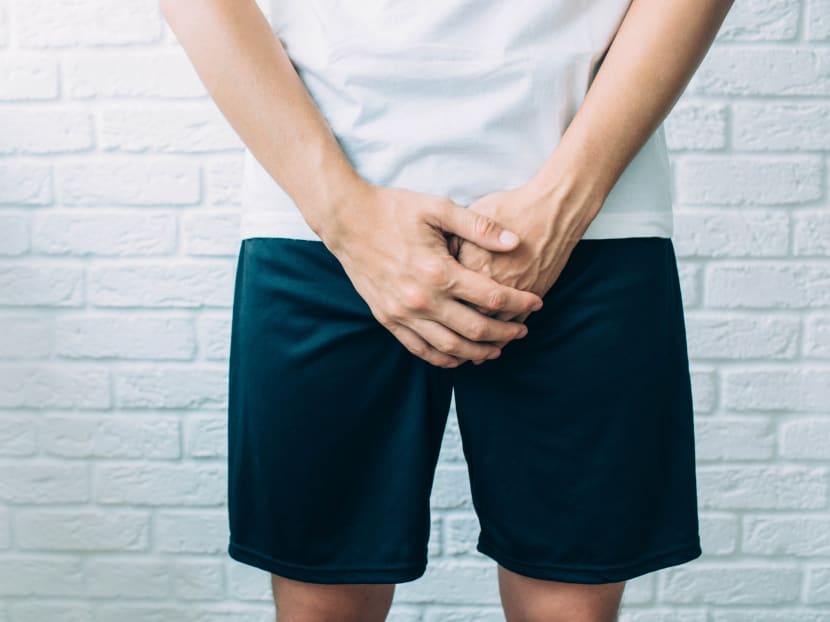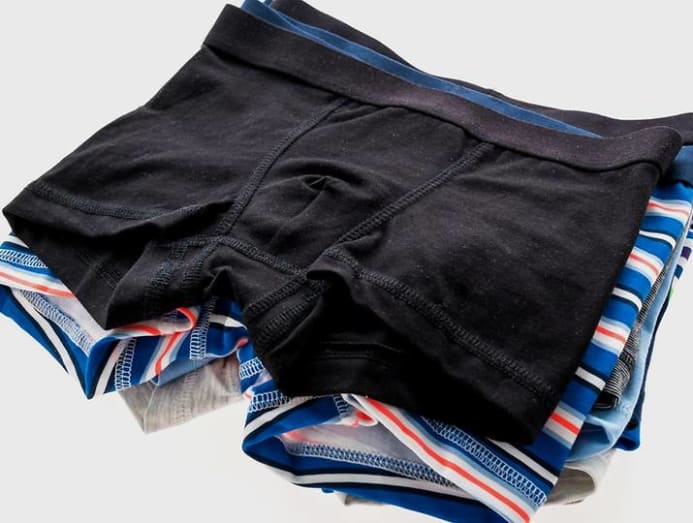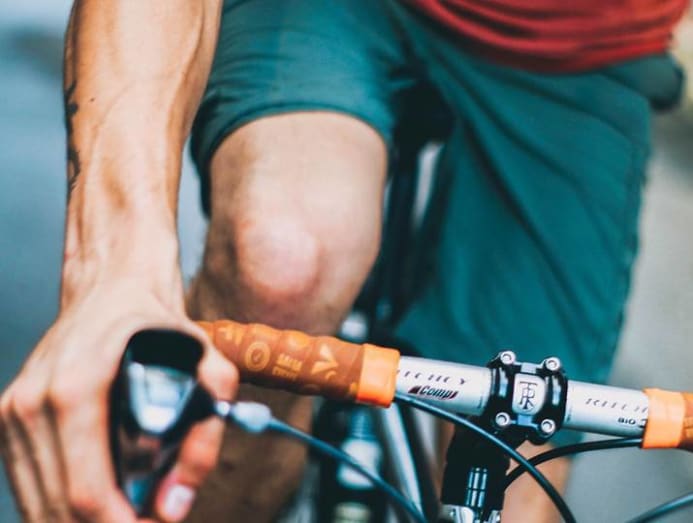How cycling, wearing briefs and using handphones can affect men's sperm health
Gentlemen, if you’ve ever wondered about how your daily activities affect your little swimmers, here’s the lowdown from medical experts on what you need to be doing to up that sperm count.

(Photo: iStock/peakSTOCK)
Sperm health. It’s an awkward topic that not many men openly care to talk about, unless it occasionally comes up – jokingly or otherwise – when mates gather and the conversation turns to matters of personal plumbing.
And casual, sometimes unsolicited, advice on keeping those little swimmers in tip-top shape are aplenty, whether it’s at the kopitiam, the Internet or from well-meaning family members: Keep things loose down there. Quit smoking and drinking. And for goodness sake, don't put your handphone near the family jewels!
READ: Uncomfortable but painless: Rectal screening for prostate cancer is nothing to fear
While the tendency for some might be to shrug these off, here’s a piece of information that might get gentlemen to take things a bit more seriously: The average sperm count for men has been dipping worldwide.
While there haven’t been any local studies to determine the average sperm count of men in Singapore, the statistics from the World Health Organization aren't looking good, explained Dr Ronny Tan, a consultant urologist and andrologist with Advanced Urology Associates.
“The criteria for normalcy is a sperm count of 15 million/millilitre. This has dropped globally from a previous normal count of 20 million/millilitre in 1999,” he said.

What this means is there are a lot of guys, whose chances of conceiving are lower – about 20 per cent lower, said Dr Janice Tung, a consultant obstetrician and gynaecologist with Thomson Fertility Centre.
As for how one could spot this issue, according to the Mayo Clinic, a couple of signs are low sex drive or difficulty maintaining an erection.
So what are the things men can do to help themselves – at least in the procreation department? For starters, you can mind what you eat and wear to help your little swimmers along.
Here’s what the experts say about some of the questions you might have.
ARE BOXERS REALLY BETTER THAN BRIEFS?
Scientifically speaking, yes. Boxers are sperm-friendlier than briefs as the latter push the testes up towards the body and increase testicular temperature. “The testes are hanging in the scrotum for a good reason,” said Dr Tan.
“This is to allow the testes to be about 2 degrees Celsius lower than the core body temperature (averaging at 36.9 degrees Celsius), which would improve sperm production as well as influence the health of the sperm.”

For the same reason, tight-fitting sportswear, tight jeans and fitted pants aren't great for sperm health either. "Elevated temperatures have been shown to lead to the arrest of sperm production, oxidative stress and DNA damage to sperm," said Dr Tung.
"I wouldn't go as far as to advise men to go commando or go pant-less at home for this purpose. But they are welcomed to do so for other reasons of their own," she quipped.
READ: Boxers or briefs, gentlemen? How to choose the right underwear for your body type
But if you can’t give up your slim-cut pants? Well, if you’re actively trying to conceive, you’ll have to decide between looking sharp and optimising your semen parameters, said Dr Tan – and that sometimes means changing up your wardrobe for a while.
SMOKING, DRINKING AND YOUR PHONE – HOW HARMFUL ARE THESE?
A lack of exercise and exposing your testes to high temperatures (such as dipping into the jacuzzi or sauna, and working under the sun) aren’t the best things you can do for your sperm count after putting on tight briefs.
It’s also safe to conclude that cigarette-and-alcohol breath isn’t the sexiest smell to have in the bedroom either. But more worryingly, heavy drinking (15 or more drinks a week) can do a whole lot of damage.

According to Healthline, it lowers testosterone, which reduces sperm production; shrinks the testes, which causes impotence; alters gonadotropin release, which impacts sperm production; causes early or decreased ejaculation; and changes the shape, size and movement of healthy sperm.
Smoking is another no-no if you’re gearing up for a baby, according to an analysis published in 2019 on BMC Public Health. In it, smokers were found to have lower sperm counts and an increase in the number of defects in the sperm’s head, neck and tail.
Obesity, the use of testosterone or steroids for bodybuilding, and mobile phone usage – especially when worn on the belt or placed in the hip pocket – were also cited by Dr Tung as “factors with more evidence of association” with infertility. In fact, a 2014 study found a correlation between mobile phone radiation exposure, DNA–fragmentation level and decreased sperm motility.
IS CYCLING REALLY BAD FOR THE FAMILY JEWELS?
Cyclists would be familiar with the numb sensation down there – but it goes beyond that. According to Dr Tan, the compression from sitting on a bike seat can occasionally affect penile erections “due to compression on the nerve in the Alcock’s canal”.
According to the World Health Organization, the criteria for normalcy is a sperm count of 15 million/millilitre. This has dropped globally from a previous normal count of 20 million/millilitre in 1999.
“Men who do long-distance cycling may experience numbness of the penis. Some men may also experience erectile dysfunction due to injury to the nerve and the blood vessels within the canal," said Dr Tan.
Other than functional issues concerning erections, Dr Tung noted that “sperm parameters have been shown to be suppressed in young, healthy males who underwent intense cycling training, as well as non-professional low-intensity cyclists”.
It may be a good idea to limit the duration and frequency of your cycling sessions if you’re trying to conceive, she said.

And while exercise is good – a BBC report said that men who exercised three times a week for at least 30 minutes had “more healthy swimmers” – take precautions to protect your family jewels.
Dr Chong Kian Tai, a consultant urologist at PanAsia Surgery, has some additional advice: Wear a scrotal guard when playing contact sports such as football, baseball, hockey, rugby, boxing or martial arts.
WHAT’S THE BEST TYPE OF FOOD TO KEEP MY SPERM HEALTHY?
Suffice it to say, a healthy, balanced diet is conducive to a healthier body – and by extension, better sperm. Swap out steak-and-sausage nights with your buddies for a roast chicken and salad dinner with the missus instead.
While you’re at it, try to keep full-fat dairy products, coffee and sugar-sweetened beverages on the low side, advised Dr Tung, as they have been linked to poor semen quality and lower fertility rates.

Replace them with foods that have been “positively associated with sperm quality”, such as vegetables, fruits, fish, poultry, cereals and low-fat dairy products, she said.
If you’re looking into supplements, Dr Tan recommended selenium, zinc, L-carnitine, L-arginine, coenzyme Q10, and Vitamins A, C and E.
But if you're concerned about your scrotal health (for instance, there is physical discomfort or you're worried about your fertility), make an appointment for tests such as an ultrasound testes scan, hormone test and/or semen analysis, said Dr Chong.





